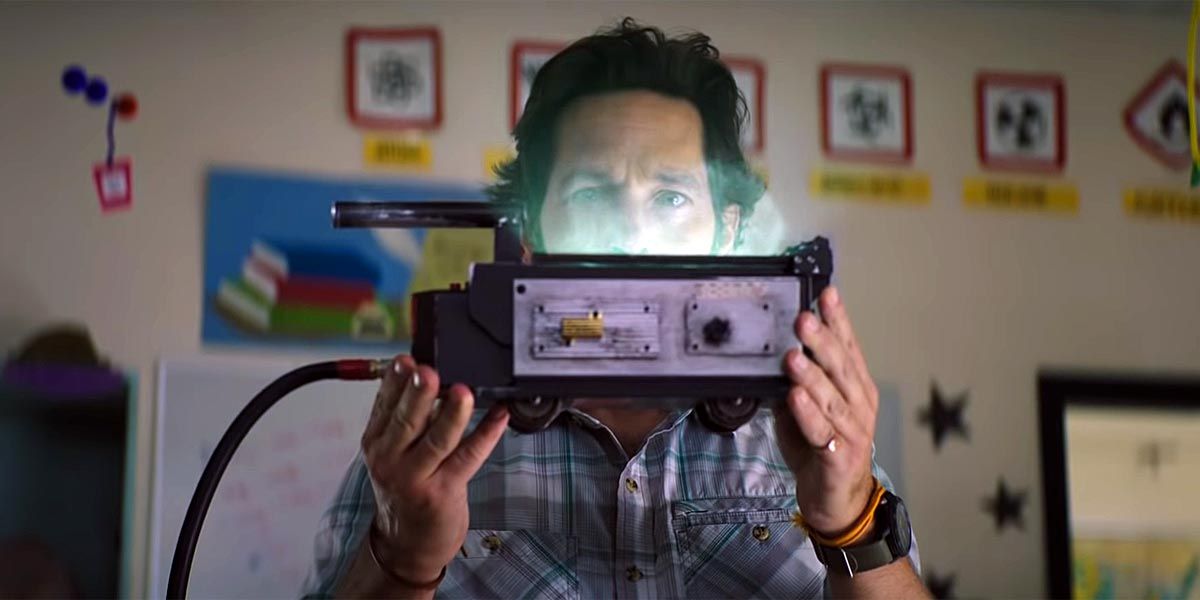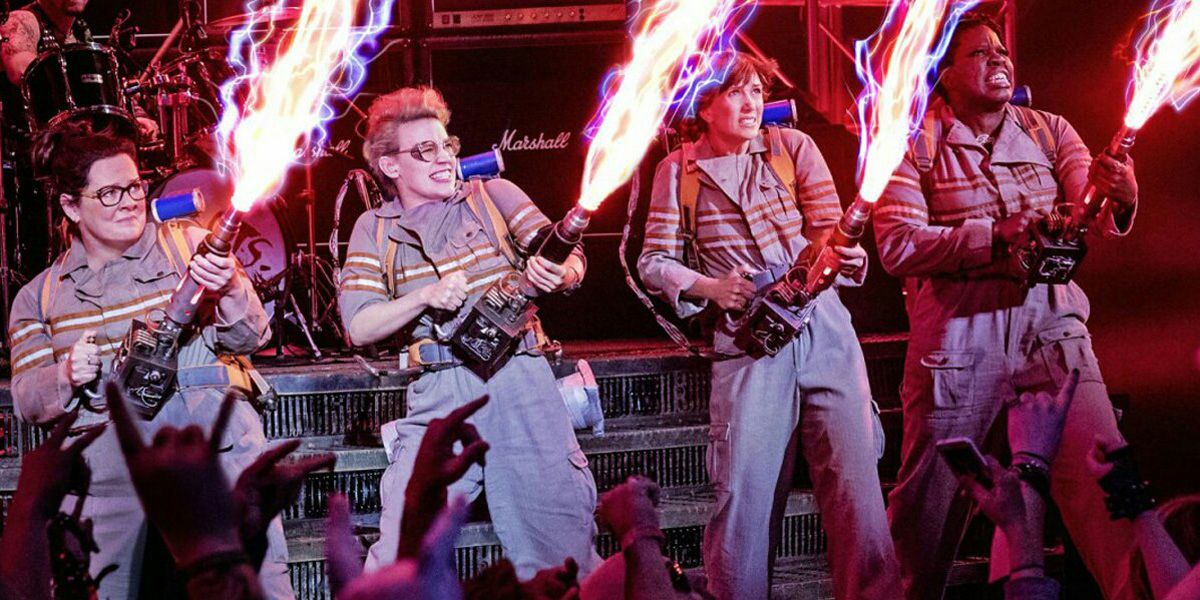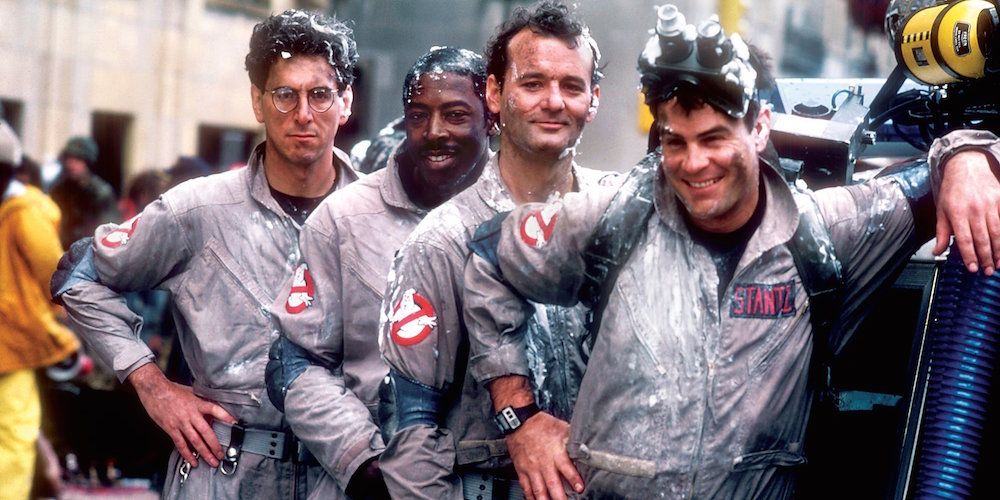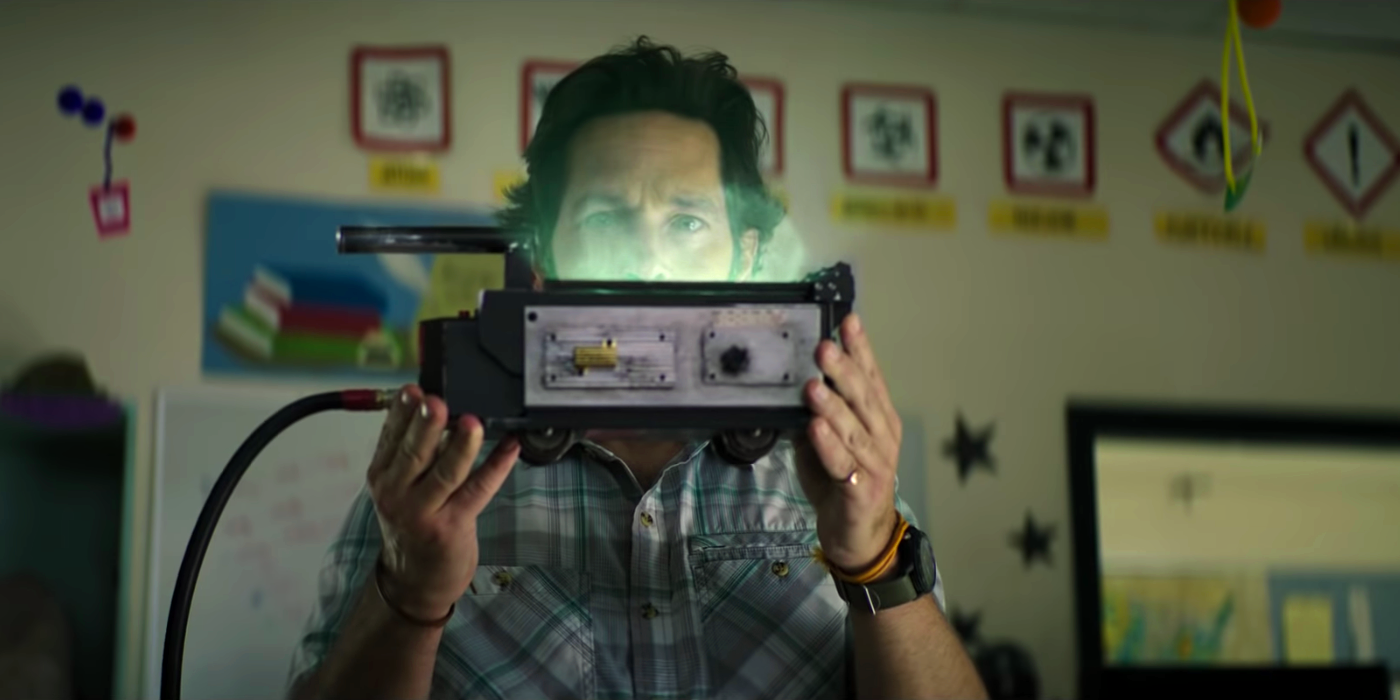The first trailer for Ghostbusters: Afterlife debuted this week. Outside of the occasional criticism about the lack of humor, the reception for the latest reimagining of the popular '80s franchise was largely positive. It's a far cry from the initial reception that director Paul Feig's Ghostbusters received in 2016.
In case you've forgotten, there was no love lost between the internet and that movie even before it debuted in theaters. Feig was blunt about the experience, stating on his Twitter account that the response to his film was: "An absolute honest to God never ending supply of bulls*** and hate from these trolls."
Not only did 2016's Ghostbusters become the most disliked film trailer on YouTube, it also resulted in abuse for star Leslie Jones who deactivated her Twitter account for a period of time. Much like Feig stated, the hatred for the movie was on another level as angry "fans" targeted the marketing material and anything associated with the production.
In contrast, the critical consensus for the film was a respectable 74% on Rotten Tomatoes, and it did make bank for Sony, pulling in $229.1 million worldwide against a budget of $144 million. It wasn't a catastrophe, despite the best efforts of "fans" to sink it.
Even so, many people still lambast the 2016 film and consider it a low point in the franchise's history. The reasons vary; however, the two most commonly listed criticisms are the accusation that the all-female cast was a gender-flipped gimmick and the lack of the original 1984 Ghostbusters cast.
Oddly enough, the same criticisms could be leveled at Ghostbusters: Afterlife. If you consider gimmicks, is there anything more on the nose than children chasing down monsters after Stranger Things? Heck, even Finn Wolfhard -- one of the stars of the Netflix show -- has been cast in the new movie. It isn't hard to imagine director Jason Reitman and screenwriter Gil Kenan penned the film with the cultural and commercial success of Stranger Things in mind.
As for the second criticism, many people forget that most of the original Ghostbusters cast members, as well as director Ivan Reitman, made cameos in the 2016 film. It was a miracle that the filmmakers succeeded in getting them all together, especially considering actor Bill Murray's highly publicized reluctance to return to the franchise.
Like the 2016 reboot, Ghostbusters: Afterlife follows a new group of characters with the original Ghostbusters actors set to make appearances. While the size of their roles is still unknown, it's unlikely they will overshadow the new characters that are prominently featured in the trailer. In fact, it's possible that their screentime will be similar to the length of their appearances in the 2016 film.
Yet, Ghostbusters: Afterlife has largely been immune to outrage. And when criticism has been brought up, it's been level-headed and absent of malice. It's the opposite of what happened to the 2016 film. Truth be told, the response towards Reitman's movie is the way it should be (although it could be argued Reitman is getting a pass because of his father's history with the franchise). All criticism should be stated in a mature and constructive manner. As a result, it's hard not to feel that Feig's film received a raw deal and didn't get the shot it deserved because of the vitriol it generated before it was ever released.
While Ghostbusters: Afterlife could be a fantastic film and even better than the 2016 production, it's illustrative of the bias and fickleness of fandom. If fans aren't on board from the get-go, it's unlikely they will be at any point. And there's nothing filmmakers can do about it.




